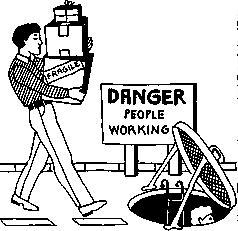Unit 5. Going to. I am going to do.
A.
We use
going to (do) when we say what we have already decided to do, or what we intend to do in the future:
A: There’s a movie on television tonight. Are you going to watch it? B: No, I’m too tired. I’m going to make it an early night.
A: I hear Ann has won a lot of money. What is she going to do with it? B: I’ve heard she’s going to travel around the world.
For the difference between will and going to see Unit 8.
B.
We prefer to use the present continuous (I am doing) when we say what someone has arranged to do – for example, arranged to meet someone, arranged to travel somewhere. Going to is also possible:
What time are you meeting Ann? (or are you going to meet)
I’m leaving for Europe on Monday, (or I’m going to leave)
See also Unit 4a.
C.
We use was/were going to to say what someone intended to do in the past (but didn’t do):
We were going to take the train, but then we decided to go by car.
A: Did Tom take the exam?
B: No, he was going to take it, but then he changed his mind.
D.
Going to also has another meaning. Study this example situation:
 The man can’t see where he is going. There is a hole in front of him. The man can’t see where he is going. There is a hole in front of him.
He is going to fall into the hole.
Here the speaker is saying what he thinks will happen. Of course he doesn’t mean that the man intends to fall into the hole.
We use going to in this way when we say what we think will happen. Usually there is something in the present situation (the man walking toward the hole) that makes the speaker sure about what will happen.
|
Look’ at those black clouds! It’s going to rain, (the clouds are there now) Oh, I feel terrible. I think I’m going to be sick. (I feel terrible now)




 The man can’t see where he is going. There is a hole in front of him.
The man can’t see where he is going. There is a hole in front of him.